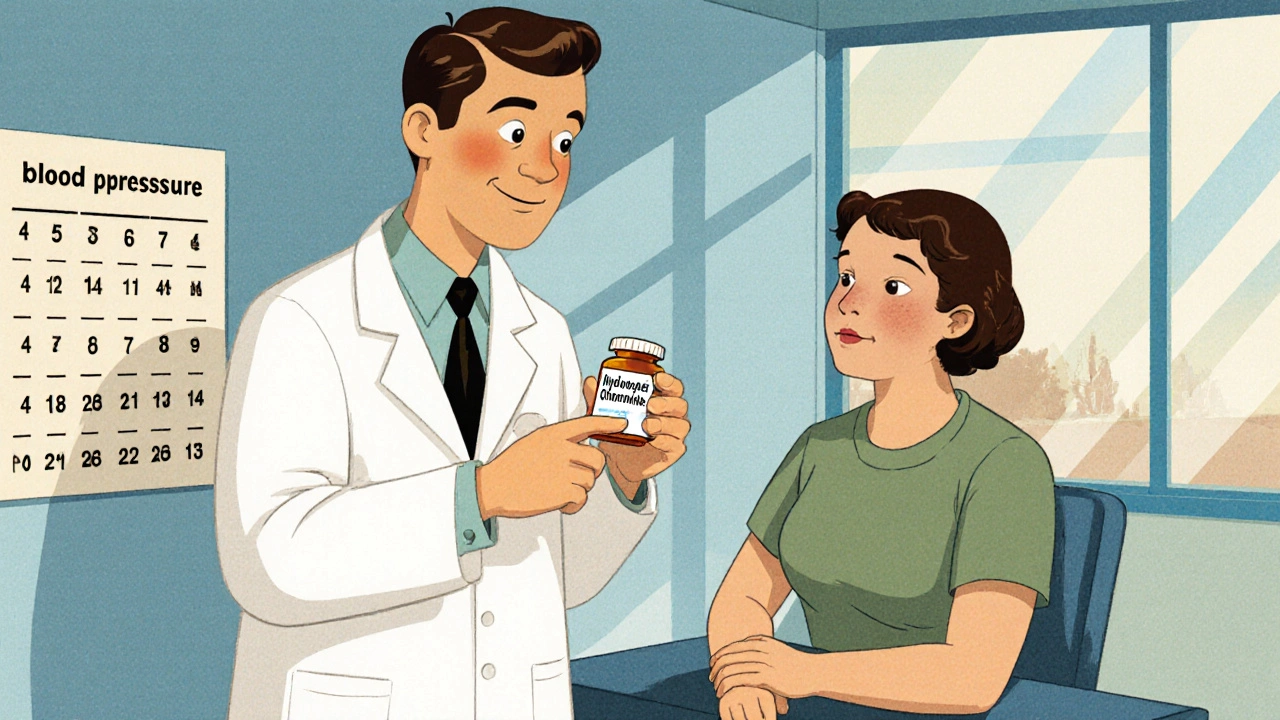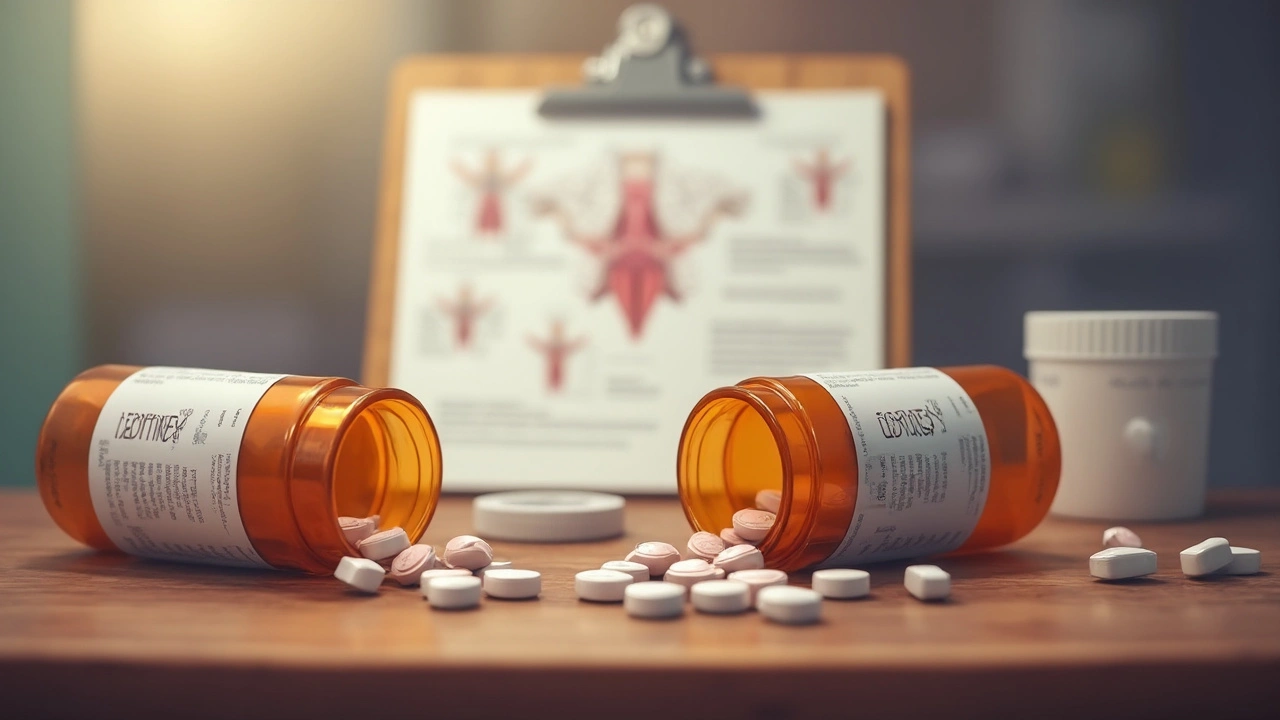Side Effects: Spotting, Understanding, and Managing Them Safely
Ever taken a pill and noticed a weird rash, stomach upset, or a sudden headache? Those are side effects – the body’s reaction to a medicine that’s not always wanted. Knowing what to expect can make the difference between a quick fix and a health scare.
First off, not every side effect is a disaster. Some are mild and fade on their own, like a dry mouth from an antihistamine. Others signal a bigger issue, such as swelling that could mean an allergic reaction. The key is to recognize patterns early and act before things get out of hand.
Common Types of Side Effects and What They Mean
Most drugs fall into a few side‑effect categories:
- Gastrointestinal upset – nausea, constipation, or diarrhea. Often linked to antibiotics, pain relievers, or iron supplements.
- Central nervous system effects – drowsiness, dizziness, or insomnia. Common with sleep aids, antidepressants, and some blood pressure meds.
- Allergic reactions – rash, itching, swelling, or shortness of breath. Can happen with any drug, but especially antibiotics and vaccines.
- Metabolic changes – weight gain, blood sugar spikes, or cholesterol shifts. Frequently seen with steroids, antipsychotics, and some diabetes drugs.
If you notice any of these, jot down when they start, how long they last, and how severe they feel. This info helps your pharmacist or doctor decide whether to adjust the dose or switch medication.
Practical Steps to Manage Side Effects
Here are quick moves you can take right now:
- Read the label – the insert lists the most common side effects. Knowing them ahead saves surprises.
- Stay hydrated – water helps flush out excess drug metabolites that might cause nausea or headaches.
- Take with food – many pills irritate an empty stomach. A light snack can soften the blow.
- Track symptoms – a simple notes app lets you spot trends and share them with your health provider.
- Don’t stop abruptly – stopping some meds (like steroids or antidepressants) without guidance can cause withdrawal symptoms.
If a side effect feels dangerous – for example, swelling of the face, trouble breathing, or a rapid heartbeat – treat it as an emergency. Call 911 or head to the nearest ER. Those reactions can indicate anaphylaxis, which needs immediate care.
For milder issues, a quick call to your pharmacist often solves the problem. They can suggest taking the drug at a different time of day, switching to a coated tablet, or adding a supporting medication to counter the side effect.
Remember, you’re not alone in this. Online resources like Pharma 24/7 break down side‑effect profiles for thousands of drugs, offering plain‑language explanations and real‑world tips. Use them to ask the right questions at your next appointment.
Bottom line: side effects are a normal part of taking medication, but they don’t have to derail your health goals. Spot them early, keep a record, and talk to a professional promptly. With the right approach, you stay in control and keep the benefits of your treatment outweighing the drawbacks.
Hydrochlorothiazide vs Alternatives: Pros, Cons, and Best Choices
Oct, 23 2025
A detailed comparison of Hydrochlorothiazide with top alternatives, covering how it works, pros, cons, side‑effects, and how to pick the best diuretic for your health.
Read Article→Manaca Supplement: Benefits, Risks, and How to Use It Safely in 2025
Aug, 27 2025
What is Manaca, what are the real benefits, side effects, and how to use it safely in 2025? Evidence-backed guide with practical steps, buyer tips, and FAQs.
Read Article→Singulair: Uses, Side Effects, and What to Expect from Montelukast
May, 28 2025
Singulair, or Montelukast, is a common medication used to treat asthma and allergies. This article dives into how Singulair works, its benefits, potential side effects, and practical tips for those using it. You’ll find clear advice on safe usage, a closer look at who should avoid this medication, and real-world facts about its effectiveness. From curious parents to allergy sufferers, this guide aims to answer every question you might have about Singulair.
Read Article→Dostinex for Sale: Understanding Its Uses and Effects
Mar, 22 2025
This article delves into the critical aspects of Dostinex, a medication primarily used to manage medical conditions related to high levels of prolactin. It explores the functionalities of its active component, Cabergoline, and highlights essential information about its common dosage, potential side effects, and drug interactions. Readers will also find useful tips on safe usage and links to trusted sources for purchasing Dostinex. Whether you're a patient or just curious, this guide offers a practical understanding of this significant drug.
Read Article→Sildalis for Sale: Understanding Its Uses and Effects
Mar, 15 2025
Sildalis combines the active ingredients, Sildenafil and Tadalafil, used to treat erectile dysfunction. The drug enhances blood flow to the penis, helping achieve an erection when sexually stimulated. While effective, it may cause side effects and interact with other medications, so it’s crucial to follow dosage guidelines. Understand the medical implications, potential side effects, and drug interactions before using Sildalis to maximize its benefits safely.
Read Article→




